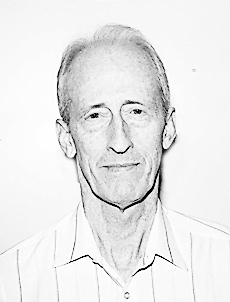This was originally published in The Williamson County Sun.

By Brian Bolton
The Sun publishes feature articles about prayer on a regular basis. This is understandable given the ubiquity of the subject, as shown by the popularity of devotional books and church sponsored seminars dedicated to prayer. Every survey of religious participation suggests that most Americans believe in the value of prayer. Prayer is typically defined as a petition or request for intercession based on an unquestioning faith, characterized by trust and reliance on a higher power.
Yet, most people don’t realize that overwhelming evidence demonstrates conclusively that God does not answer prayer. The purpose of this brief statement is to outline the empirical evidence that addresses the topic.
There are two types of evidence that speak to the efficacy of intercessory prayer. The first category is evidence of everyday experience, which encompasses responses to the thousands of tragic events that occur each day. Some of these are reported in standard print and television news stories.
For example, after an 11-year-old boy was found alive in the rugged Utah wilderness, his mother proclaimed that the family’s prayers had been answered. During the same week, the bodies of three boys were discovered in the trunk of a car in New Jersey after a five-day search. There were no public declarations about the futility of prayers by family and friends.
Situations like these occur daily across America. Regardless of the nature of the tragedy, the reaction is always the same. When the prayed-for individual survives, all credit is given to God. But when the prayed-for person succumbs, the inevitable response is, “God has called her home” or “He is in a better place now.” God is never blamed for negative outcomes.
Believers are quick to cite cases where prayer is associated with positive results, while they steadfastly disregard those circumstances where prayer is followed by unfavorable outcomes. This is why experimental investigation (the second category of evidence) are essential for examining claims about the benefits of prayer.
In fact, five randomized clinical trials designed to evaluate the utility of intercessory prayer have been reported in medical journals. Almost 5,000 hospitalized cardiac patients were randomly assigned to prayed-for and not-prayed-for conditions. The vast majority of intercessors represented Christian denominations.
The focus of the prayers was patient recovery with minimal complications. Although there were a variety of measures of clinical progress taken, the critical criterion common to all five studies was patient mortality. That outcome is a reliable indicator of the ultimate success or failure of the prayer intervention.
It is important to note that the principal investigators were devout Christians or physicians sympathetic to the inclusion of prayer and spiritual support in medical practice. None of the researchers was an unbeliever or skeptic. Moreover, the projects were implemented for the explicit purpose of demonstrating the healing power of prayer.
Unfortunately, this series of five carefully conducted clinical trials did not produce any evidence in support of the proposition that hospitalized patients derive benefit from the altruistic prayers of committed intercessors. Specifically, the mortality rates were very similar for prayed-for and not-prayed-for patients.
These experimental findings are entirely consistent with the evidence of everyday experience. Fervent prayers for recovery from disease and accidents fail just as often as favorable outcomes occur. In other words, restoration to optimal health is a matter of competent medical care and good luck. Intercessory prayer does not improve the probability of survival.
Brian Bolton is a retired research psychologist and Lifetime Foundation Member.

